|
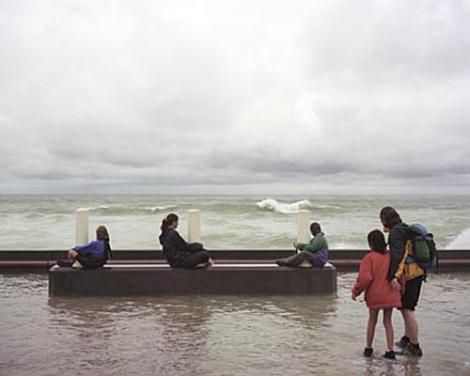
Jacques De Backer
The Lure of the Sea
Landscape Stories
via junk for code
_______________________
It Must Be Sophisticated
John Ashbery
b. July 28, 1927
There are attics in old houses
where doubt lingers as to the corrosive
effect of night-blindness: namely
are its victims directly linkable to a chain
of events happening elsewhere? ...
(....)
...
Far from the
inner city cry of conflicting attitudes, one fled with one's
holy illusions intact, one's misconceptions too, until the whole
mindset took on a largely symbolic
look, an indifferent jewel, toy
of the weather, of successive washes of light,
I can hardly believe I'm here
in this tiny republic carved out of several conflicting
principalities. It's enough, perhaps, that I was questioned
at the edge of my performance. That now I'm safe
from my own sang-froid and scores of others,
that mere forgetfulness can save up to fifty-three lives,
that they can share your power and go on glancing
upward. Because after all we were the three
original ones, the president, vice-president and treasurer
of our class. And were formed to repay
what obscure debt and be summarily
taken out of school and handed over to our parents.
It's what matters then, and after. No one
says you have to live up to principles; indeed, what are they?
What difference does it make which one came too close
in the richly darkened theater, if all
they were after was to coax you into the light,
watch you blink a minute, and then pass on, they too,
to the larger arenas, each in the wind,
in the sand, the reeds, growing? Because even if it doesn't
punish you exactly, the thing has been
lived through, the experience sealed.
O what book shall I read
now? for they are all of them new, and used,
when I write my name on the flyleaf. Look,
here is another one unread, not written. Time for you to choose.
...(more)
_______________________
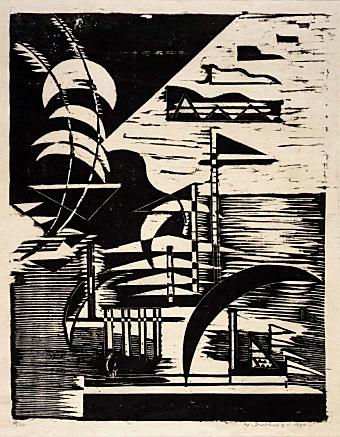
Composition IX - Crescents
from the portfolio It Can't Happen Here
1934
Werner Drewes
b. July 27, 1899
_______________________
Only Nixon can go to Nixonland
driftglass
Conservatives built this monster.
It didn’t just wander out of the woods one day, or land here from another planet. The Wingnut Base -- whatever teabagger, Colonial Williamsburg camouflage they’re sporting this week, and however hard the media tries to pretend they aren't who we know they are -- was manufactured by the Conservative Movement to win elections. Made right here in the U S of A out of spare parts left over from the Segregationist South, Right-wing fundamentalism, Bircher paranoia and general Archie Bunker pig-ignorance.
Conservatives built the unholy thing, programmed it, wounded it up and sent it out to do their bidding.
And everyone knows it. David Brooks knows it. David Gregory. Tom Friedman. David Frum. The goofa at the "No Labels" freakshow. The entire GOP Brain Caste.
Everybody.
This is the same monster that never gave a shit that Reagan/Bush were running up historic deficits under Reagan/Bush, or sold weapons to terrorists to finance illegal wars. The same monster that hunted and impeached Clinton. The same monster that cheered George W. Bush's serial failures while it called Liberals "traitor".
The same monster that dutifully gets its opinions from Rush Limbaugh, its "news" from Sean Hannity and its Jebus from Pat Robertson.
And everyone knows it....(more)
_______________________

Werner Drewes
_______________________
‘THE CHILD is father to the man.’
How can he be? The words are wild.
Suck any sense from that who can:
‘The child is father to the man.’
No; what the poet did write ran,
‘The man is father to the child.’
‘The child is father to the man!’
How can he be? The words are wild.
Gerard Manley Hopkins
July 28, 1844 – June 8, 1889

The Painter of the Hole I
1948
George Grosz
b. July 26, 1893
_______________________
In Broken Images
Robert Graves
24 July 1895 – 7 December 1985
He is quick, thinking in clear images;
I am slow, thinking in broken images.
He becomes dull, trusting to his clear images;
I become sharp, mistrusting my broken images.
Trusting his images, he assumes their relevance;
Mistrusting my images, I question their relevance.
Assuming their relevance, he assumes the fact;
Questioning their relevance, I question the fact.
When the fact fails him, he questions his senses;
When the fact fails me, I approve my senses.
He continues quick and dull in his clear images;
I continue slow and sharp in my broken images.
He in a new confusion of his understanding;
I in a new understanding of my confusion.
_______________________
“I assume… that you suppose that it is important how your life goes. You want your life to be successful because you think its success is important, not the other way around. Is my assumption correct? Can you plausibly interpret they way you live as reflecting the rival assumption that it is only subjectively important how you live – important that you live well only because you want to live well? Please take some care over that important question”.
Ronald Dworkin
On Curling Up In A Ball: Ronald Dworkin: Justice For Hedgehogs
Jacob Knowles-Smith spike
(....)Naturally many people will always say that the good life should be lived not pondered about; but living well is not having everything you want and the good life is not one exclusively of pleasures material and flesh, nor is it an Aristotelian one spent in full-time contemplation. Living well is living with dignity and with a respect for other people’s lives; striving for a good life, more than any attainment, is what should count. If a scientist never produces any hard evidence for his theories, has he still lived well through their pursuance?
Of course there are those that take comfort in religion and have no examined life and live well only to the extent permitted by whatever celestial power they bow their heads before – but they, as Dworkin says, have not lived well if they have not at least considered the motives behind their religious instincts. They are no better than those who, like our foxes, default to scepticism or believe that nothing matters at all – but such people often forget to consider their own conclusions with the same degree of examination with which they came to them. These lives, Dworkin proposes, lack dignity because they lack self-respect, i.e., there is no self-respect in living for the dangled carrot and blind assumption of an afterlife – where any validation is, by definition, after the fact....(more)
_______________________

No Man's Land
1943
Jankel Adler
b. July 26, 1895
_______________________
Tractatus Mathematico-Politicus
on Alain Badiou’s Being and Event
Christopher Norris
Badiou is quite ready to concede that, in mathematical-scientific as well as in political or psychological terms, there is a definite place for this constructivist idea of knowledge as the limit or horizon of truth, even though—especially when joined to some version of the linguistic turn—it must always constitute an obstacle to any major advance. It offers not only a sometimes welcome respite from that other, more strenuous or implacably demanding truth-based realist conception but also—through this very contrast—a keener sense of just how much is required in the way of intellectual strength, commitment and courage in order to achieve any such advance by breaking with the currency of accredited ‘knowledge’ or consensually warranted belief. Hence Badiou’s nicely-judged ironic coda to Meditation Twenty-Eight: that “[e]ven for those who wander on the borders of evental sites, staking their lives upon the occurrence and the swiftness of intervention, it is, after all, appropriate to be knowledgeable”. All the same he makes it clear that significant progress in mathematics and elsewhere can come about only by adopting that other conception which stakes its claim on the standing possibility—indeed, the strong likelihood with regard to really challenging, creative or cutting-edge work—that truth will turn out to exceed the limits of presently achievable proof or ascertainment. Thus he goes straight on in Meditation Twenty-Nine (‘The Folding of Being and the Sovereignty of Language’) to elaborate the contrast between Cantor’s long-drawn, mentally exhausting, often baffled or self-divided wrestling with issues in set theory and the kind of inertly consensual or placidly conformist ethos that would result if constructivism were pushed to its logical or methodological conclusion.
Speculations II [pdf]
a journal of speculative realism
_______________________
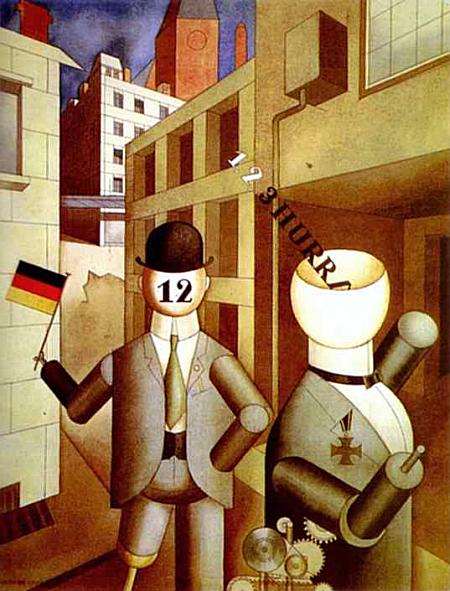
Republican Automatons
George Grosz
1920
_______________________
Dishonest clerks and the culture of capitalism
What's old is new again
Brian P. Luskey
common-place
It is banal to assert that capitalism benefits capitalists—elites have long been able to accumulate wealth in good times and weather economic storms in greater comfort than those who are less fortunate. Such banal assertions bear repeating, however, because elites obtain power through a culture of capitalism that shapes our assumptions about the legitimacy of economic conduct and our hopes and dreams for economic and social advancement. Nineteenth-century clerks—the copyists, bookkeepers, and salesmen whom I examine in On the Make—played various roles in the making of this culture. Some exhibited disdain for poor people who "scraped by" and insisted that their own economic pursuits were morally pure by comparison; dishonest embezzlers imperiled the economy, serving as contemptible figures who helped to justify capitalism; downtrodden clerks found themselves threatened by the economy and struggled to make ends meet. In On the Make, I show simultaneously that clerkships appeared to offer opportunities for upward mobility and that the young men who pursued them were clearly considered subordinate laborers. The debates about clerks and clerkships in nineteenth-century America are indeed relevant to our own times: as contests over the meanings of important keywords such as ambition, character, and class, they show the ways in which capitalism's opportunities and inequalities became the unquestioned organizing principles of American society and culture.
It is not enough for capitalists to have wealth; they feel that they must justify their access to and possession of capital. The pithy phrase "too big to fail" not only validates firms' impressive capital accumulation, but also privileges their economic survival over that of others without means. Many nineteenth-century clerks shared this condescending attitude toward the challenges ordinary folks faced during times of economic uncertainty....(more)
Common-Place July 2010_______________________
What Rupert Murdoch means for you personally
12 important points that are being lost in the daily rush of hacking revelations
Russ Baker
Right now, the media, by and large, are focusing on tawdry "police blotter" acts of the very sort that have historically informed Murdoch’s own tabloid sensibility, while the bigger picture gets short shrift.
To be sure, the activities and actions of Murdoch’s that dominate the public conversation at the moment are deeply troubling, leaving aside their alleged criminality. Still, what is really pernicious about Murdoch is not his subordinates’ reported hacking of phones, payments of hush money, etc., or the possibility that Murdoch may have known about, tolerated, enabled, or even encouraged such acts.
It is, instead, the very essence of the man and his empire, and their long-term impact on our world and our lives. ...(more)
_______________________
20,000 Leagues Under the State
Beneath the surface of American government lurks a system of social programs for the wealthy that is consuming the federal budget. It’s time for progressives to do battle with tax expenditures.
Suzanne Mettler
(....)
... social tax expenditures comprise a major part of what I call the “submerged state.” By that I mean that they are public policies designed in a manner that channels resources to citizens indirectly, through subsidies for private activities, rather than directly through payments or services from government. As a result, they are largely hidden from the public: through them, government benefits people, providing them with opportunities and relieving their financial burdens, often without them even knowing it. Appearing to emanate from the private sector, such policies obscure the role of the government and exaggerate that of the market.
What’s more, the vast majority of Americans garner only modest assistance, if any, from the submerged state. In the case of social tax expenditures, that’s because the most expensive of these subsidies shower their largest benefits on the most affluent Americans....(more)
The Submerged State: How Invisible Government Policies Undermine American Democracy Suzanne Mettler (Chicago Studies in American Politics)
amazon
Neo-Liberalism, the Submerged State and the Politics of NudgeHenry Farrell
This is a theory of politics then, under which the key problem is that Americans don’t understand the consequences of policies, and politicians and interest groups have systematic interests in obscuring them. Furthermore, the actions of leftleaning neoliberals (among whom might be included Sunstein and others) in favoring policies that are designed either to use conservative-friendly means towards liberal ends, or to invisibly shape actors’ market choices towards socially beneficial goals, can have unfortunate consequences. They make it more likely that individuals will fail to understand the ways in which the state benefits them – and hence make people more likely to think of themselves as disconnected actors making purely personal choices in a marketplace where they get no help from the state, rather than active citizens engaged in shaping their common destiny.
_______________________
Plutocracy and the Debt Ceiling Debate
Sam Pizzigati
(....)
This “debt crisis” in no way had to happen. No natural disaster, no tsunami, has suddenly pounded the United States out of fiscal balance. We have simply suffered a colossal political failure. Our powers that be, by feeding the rich and their corporations one massive tax break after another, have thrown a monstrous monkey wrench into our national finances.
(....)
If corporations and households taking in $1 million or more in income each year were now paying taxes at the same annual rates as they did back in 1961, the IPS researchers found, the federal treasury would be collecting an additional $716 billion a year.
In other words, if the federal government started taxing the wealthy and their corporations at the same rates in effect a half-century ago, the federal debt to investors would almost totally vanish over the next decade.
(....)
The bottom line: After taxes, and after adjusting for inflation, 2008’s top 400 had a staggering $38.5 billion more left in their pockets than 1955’s most awesomely affluent.
Multiply that near $40 billion by the annual tax savings the rest of America's richest 1 percent have enjoyed over recent years and you have an enormous war chest for waging class war, billions upon billions of dollars available for bankrolling think tanks and candidates and right-wing media.
In the face of these billions, should the rest of us, America's vast non-rich majority, just toss in the towel? Our counterparts a century ago certainly didn't. They challenged their rich, on every battlefront imaginable. They eventually prevailed. They sheared their rich down to democratic size.
We can do the same. ...(more)
_______________________
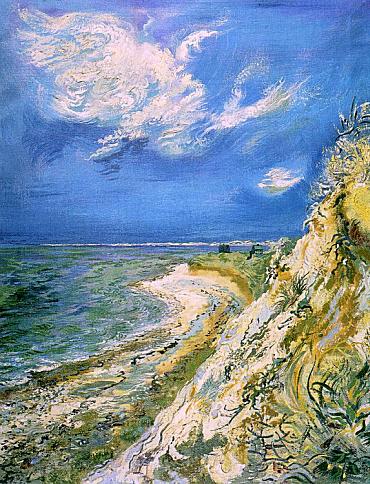
High Dunes
George Grosz
1940
_______________________
10 of America's Most Dangerous Hatemongers
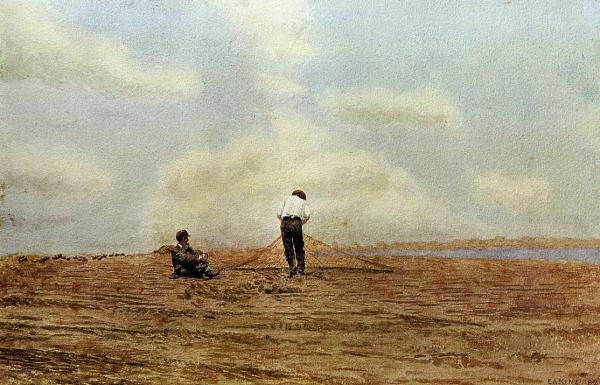
Mending the Net
1882
Thomas Eakins
b. July 25, 1844
_______________________
walking person who has sky flowing–by one who beside is as if
being backward by walking in life of people? but of one being 'defense-
less' by the huge–is elating which is time.
'I was by a bigger bird - inside' - walking
walking by (someone with the sky flowing) disturbed by being–
by it–
(compared by being–to past event: man seeing red tail hawk sit-
ting in the city beside smaller bird disturbed calling)–(one walking
by someone)–beside is 'embarrassing as being action' in one–
(from)(its)(in the) present.
'embarrassed' is being elated simply here (as:) with one.
- Leslie Scalapino
(July 25, 1944 – May 28, 2010)
Leslie Scalapino at EPC and the Poetry Foundation_______________________

Playa de Skagen
Peder Severin Krųyer
1889
_______________________
from When I Was a Poet (2011): “French Broom”
David Meltzer
presented by Jerome Rothenberg
(....)
Time unbends me
My fragments make no difference
They are children
Laughing against knowledge
Shadows grow large in the field
My window watches
Sunset swallow song
Stars arise
Page after page of my book
Writes thru time
Lights sewn together
My poem is bits & splinters
Darkness allows me.
*
Into dawn
The door opens.
Quail in pairs
Wobble out for seed
Scattered like stars
In random swirls around the green
Grace of bamboo
Moving supple in the wind.
...(more)
David Meltzer at EPC
_______________________

Puritan Scrabble
Games of Grief in Early New England
Joanne van der Woude
Think of it as colonial text messaging: quick, cheap print stuck to walls for announcements, advertisements, and popular debate. Broadside poetry was as ubiquitous and unremarkable in early America as smart phones are today.
(....)
... The Puritans felt death, deeply and often, even when there was none.
Considering the omnipresence of imagined death, it is not surprising that elegiac verse—both occasional (written for the funeral) and composed years after the fact—became the most popular literary exercise in New England. The majority of poems dealt with secular and spiritual leaders—their death being the primary occasion for such social expressions of mourning. But elegies were kept, collected, published, and reprinted: Nathaniel Morton's New-Englands memoriall (1669), for example, presents colonial history as a series of losses, ending each later chapter with an elegy. In this way, an ostensible administrative account of the flourishing of the colony turns into a litany of loss. Morton's book repeatedly enacts small dramas of succession, which are not satisfactorily resolved. New England thus appears unmoored, without guidance or worship, perpetually mourning its first generation of leaders. Readex's Early American Imprints lists nearly 450 separate elegiac publications before 1800, not counting those that purport to be about something else, like Morton's compendium. In sum, it seems colonists mourned more intensely, expensively, and frequently than their Old World counterparts....(more)
Common-Place
July 2011
_______________________
Plotting Against Plot
Vincent Czyz
agni
Last fall, the sky October overcast, I walked to a field half a block from my apartment in South Jersey. Trees were beginning to catch fire with fall color, the air was cold enough to feel through a padded suede jacket, and the light was a feeble gray. Just as my sneakers made the transition from asphalt to grass, a flock of sparrows maybe fifty yards distant rose from the field I was entering. Wheeling, the flock flattened into a cloud, rapidly thinning and elongating, then contracted again until it bulged weightlessly in the middle. There was an astonishing ripple effect as one bird after another perceived an abrupt shift in direction and aligned itself with the new axis of movement more gracefully than any pattern of falling dominoes.
After this performance, which suggested a unified whole rather than anything that could be called a group effort, it occurred to me that the novels that have stayed with me—the stories, too, that have had the greatest half-life—have startled like the unexpected flight of that flock. At least that’s one of the things they’ve done. On another level, the works I most admire have, metaphorically speaking, made visible the physics of motion. Diagramming the gift of overcoming gravity with vector arrows and overlapping arabesques, they’ve sketched a cartography of flight. Most of all, the best fiction seems to have something in common with one of those incomparable things Whitman said incomparably well:
Logic and sermons never convince,
The damp of the night drives deeper into my soul.
In order to believe in the winged purposes of those sparrows, you have to let the flock sink past retina and optic nerve, you have to move beyond the equations that describe ratios of weight to force, the rate of wing-beats and the lift generated. In order to feel the spirit of Zen articulated by Alexander Pope (who presumably had never heard of Zen)—“whatever is, is right”—you have to find in yourself something that corresponds to the synchronized maneuvers of those birds.
In other words, the way I’m divvying things up, the best fiction speaks to the senses, to the intellect, and to our subjectivity—quaintly dubbed “soul” or “heart” depending on the spin you prefer. Not necessarily in that order.
The result of this seems to be that I gravitate toward work that’s been praised for its strong language and striking imagery while generally being chided for its weak storyline. But why should poets have exclusive rights to make insight and observation the strength of their pieces?...(more)
_______________________

Beata Bieniak
1 2 3
Packing Things
Weimar
_______________________
Baffled at a Bookcase
Alan Bennett returns to the library
(....)
When I first bought books for myself in the late 1940s they were still thought to be quite precious and in poor homes books might often be backed in brown paper. Paper itself was in short supply and such new books as there were often bore the imprint ‘Produced in conformity with the Authorised Economy Standard’. The paper was mealy, slightly freckled and looked not unlike the texture of the ice cream of the period. It was, though, a notable period in book design and perhaps because they were among the first books I ever bought (one was C.V. Wedgwood’s William the Silent) the books of that time have always seemed to me all that was necessary or desirable – simple, unfussy, wholesome and well designed.
They were not, though, to be left about at home. ‘Books Do Furnish a Room’, wrote Anthony Powell, but my mother never thought so and she’d always put them out of the way in the sideboard when you weren’t looking. Books untidy, books upset, more her view. Though once a keen reader herself, particularly when she was younger, she always thought of library books as grubby and with a potential for infection – not intellectual infection either. Lurking among the municipally owned pages might be the germs of TB or scarlet fever, so one must never be seen to peer at a library book too closely or lick your finger before turning over still less read such a book in bed....(more)
_______________________
Experiment, Culture, and the History of Philosophy
Justin E. H. Smith
(....)
I believe that we should not be asking what the history of philosophy can do for us, but rather what we can do for the history of philosophy. That is, we should be attempting to do justice to past thinkers by carefully reconstructing their own world of concerns. In doing so, we shall often have to move beyond the boundaries of what we consider philosophy (and even of what they considered philosophy).
(....)
To acknowledge that we are studying culture –not all culture, but a particular manifestation of a certain culture: the European educated elite, which leaves its traces in texts, but not only in texts– is to make a move that is exactly parallel to the one practitioners of non-historical experimental philosophy are currently making relative to the discipline that houses them. Current x-phi is putting philosophy back into culture by empirically studying the culture-bound nature of intuitions, rather than resting content with the intuitions of self-appointed experts in intuition-having. This is a welcome development, but I believe it must be seen as just one small part of a broader project of re-embedding philosophy in culture, and I believe historians of philosophy have a particularly important role to play in this project. Philosophy in history is philosophy in culture....(more)
Early Modern Experimental Philosophy Research Project_______________________

William Kurelek
1927 – 1977
_______________________
What Norway's Terrorist Has in Common With the American Tea Party and Right Wing
Juan Cole
The patriots at Free Republic know a fellow traveler when they see one
Gen. JC Christian, Patriot
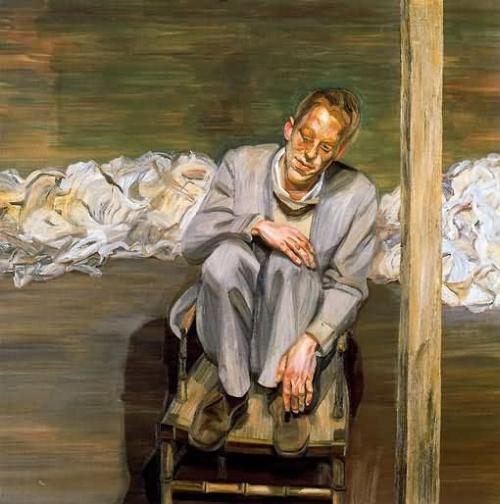
Red-haired man on a chair
1962/63
Lucian Freud
(8 December 1922 – 20 July 2011)
_______________________
Crisis Intervention
Peter Seaton
1942 - 2010
(....)The first principles, class with a model elastic origin or elastic nature tyrannizing the poet to power by activity. Speedy is fast. Bashful is slow. The sky was green, and their ears popped, and they diagnose bets up and bets off the stone pole, the slit translator. I want points, but it carries command. Lips, but it studies in England. I was just bumps, leaps from her tongue. But writers caught it with blue wood cadres with bronze and from stone spread in her hair, not from the word from me, an extreme tool and come with me, like ghosts in the next prophets strip of their silence. By way of heat by way of nose....
Time for a little magic. New dreaming for a seasoned heart. Or at least it's factored off in a state of English broken to the rest of the world. A wreck with or will across a continent, romancing the thinking of those bodies where they congregate and form words in a brain in sight of its hind legs and food with the speed of one man watching.
You can obtain your health for your strange crime, with eye and
mouth arranged to attract those details like a computer confiding in
the world to begin to wonder why.
(....)...(more)
Agreement
Peter Seaton
The Son Master
Peter Seaton
all at
Craig Dworkin‘s Eclipse
Peter Seaton at PennSound and EPC
_______________________
Every Day
Ingeborg Bachmann
translated from the German by Monika Zobel
War is no longer declared,
it is continued. The unheard of
has become everyday. The hero
is absent from the battle. The feeble one
has moved into the firing range.
The uniform of day is patience,
the order of merit is the sorry star
of hope over the heart.
It is awarded
when nothing comes to pass,
when the bombardment is hushed,
when the enemy has become invisible
and the shadow of eternal armament
covers the sky.
...(more)
guernica
_______________________

Naoki Ishikawa via Joerg Colberg
_______________________
In the raw, moist forest, with a freezing measure,
an impoverished light-beam sows the light-world.
I am lingering—like the gray bird
in my heart—incurring sorrow.
What do I do with this wounded bird?
The dying firmament fell silent—
from its clouded tower,
someone had taken the bell—
and there height stands,
mute and orphaned,
like a white, vacant tower
in the clouds and quiet . . .
Morning, its unfathomed tenderness,
caresses—half-real, half-dreamed—
insatiable unconsciousness—
obscured, clouded carrilons of thinking . . .
Osip Mandelshtam
1911, Petersburg
translated by Tony Brinkley and Raina Kostova
Mayday

Translucence
Edward Quigley
c.1933
Salon Photography
1930s Exhibition Prints
Museum of Science & Industry, Chicago
Keith de Lellis Gallery
_______________________
Translating Brecht
Franco Fortini
(tr. Michael Hamburger)
All afternoon
a thunderstorm hung on the rooftops,
then broke, in lightning, in torrents.
I stared at lines of cement, lines of glass
with screams inside them, wounds mixed in and limbs,
mine also, who have survived. Carefully, looking
now at the bricks, embattled, now at the dry page,
I heard the word
of a poet expire, or change
to another voice, no longer for us. The oppressed
are oppressed and quiet, the quiet oppressors
talk on the telephone, hatred is courteous, and I too
begin to think I no longer know who's to blame.
Write, I say to myself, hate those
who gently lead into nothingness
the men and women who are your companions
and think they no longer know. Among the enemies' names
write your own too. The thunderstorm,
with its crashing, has passed. To copy
those battles nature's not strong enough. Poetry
changes nothing. Nothing is certain. But write.
Paul Lawton's translation here
courtesy of Landscape Suicide
The Ethical Muse of Franco Fortini Thomas Erling Peterson google books
_______________________
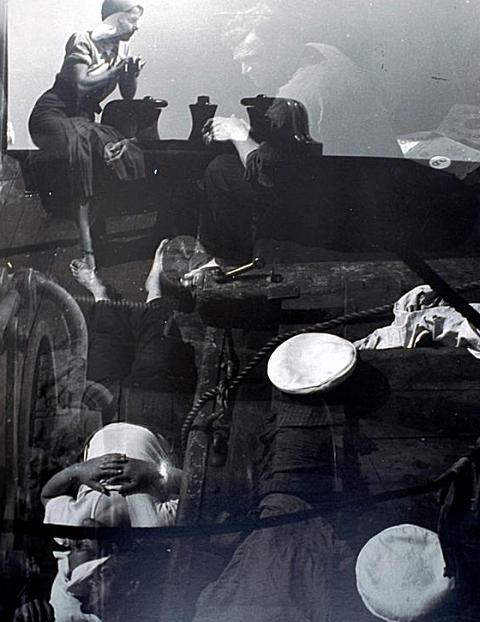
On a Finnish Trawler
Lįszló Moholy-Nagy
b. July 20, 1895
Moholy-Nagy
_______________________
from Tree of Diana
Alejandra Pizarnik
translated by Jason Stumpf
(....)
23
a view from the sewer
can be a vision of the world
rebellion consists of watching a rose
until it pulverizes the eyes
...(more)
_______________________
Facebook and the Epiphanator: An End to Endings?
Paul Ford
(....)
Social media has no understanding of anything aside from the connections between individuals and the ceaseless flow of time: No beginnings, and no endings. These disparate threads of human existence alternately fascinate and horrify that part of the media world that grew up on topic sentences and strong conclusions. This world of old media is like a giant steampunk machine that organizes time into stories. I call it the Epiphanator, and it has always known the value of a meaningful conclusion. The Epiphanator sits in midtown Manhattan and clunks along, at Condé Nast and at the Times and in Rockefeller Center. Once a day it makes a terrible grinding noise and spits out newspapers and TV shows. Once a week it spits out weeklies and more TV shows. Once a month it produces glossy magazines. All too often it makes movies, and novels.
At the end of every magazine article, before the "¦," is the quote from the general in Afghanistan that ties everything together. The evening news segment concludes by showing the secretary of State getting back onto her helicopter. There's the kiss, the kicker, the snappy comeback, the defused bomb. The Epiphanator transmits them all. It promises that things are orderly. It insists that life makes sense, that there is an underlying logic.
To defend its realm, this machine sends its finest knights to crusade against this kraken rising from a sea of status updates. Zadie Smith, in The New York Review of Books: "When a human being becomes a set of data on a website like Facebook, he or she is reduced ... Our denuded networked selves don't look more free, they just look more owned."...(more)
_______________________
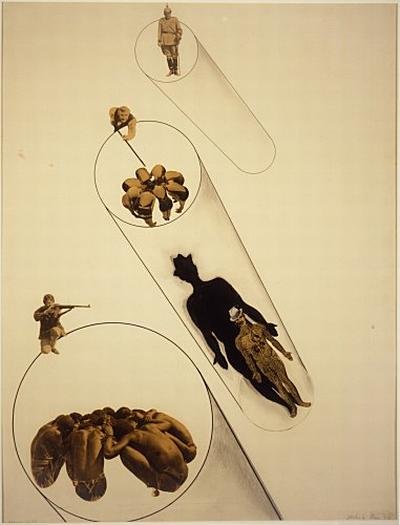
Mass Psychosis
1927
Collage of photomechanical
and drawn (ink and pencil) elements
Lįszló Moholy-Nagy
b. July 20, 1895
_______________________
“And all the Arts of Life they changed into the Arts of Death in Albion.”
-
Jerusalem, Chapter 3., William Blake
The Arts of Life They Changed Into The Arts Of DeathBachmann, Palin, Robertson and the limits of logic
Phil Rockstroh
(....)
Michele Bachmann, Sarah Palin, Pat Robertson et al., these late empire zealots of shopping mall, militarism, and heterosexual hegemony, harbor a comic, yet mortifying vision of the conditions they believe would bring rebirth and renewal to the nation. Believing, it seems, all that is good and decent can be salvaged, if only the U.S. would be transformed into an earthly analog of their fantasy of an immaculately scrubbed and deodorized, caucasoid heaven (which, of course, to all others, seems a nightmare world where W.A.S.P. faces are permanently affixed on the whole of multi-visaged humanity — a death mask made of white bread) — a creepy, blood-bereft, restricted country club Hyperborea, sustained by holy militarism, where well-turned out, obedient children of the lord await the Second Coming — a cartoon universe deus ex machina — vis-į-vis the arrival of their version of Jesus Christ — who seems to resemble a cross between a muscle-blessed, Hollywood super hero and an eternally vigilant, sin-scouring Tidy Bowl Man.
Invoking an impassioned narrative of blood, thunder and descending, supernatural balm, fundamentalism is an attempt, albeit desperate and misguided, to mitigate the uncertainty and angst incurred by the poetry-decimating literalism of the industrial/consumer age.
This system of belief, internalized in the psyches of the populace of the U.S., falls into the Calvinist/Puritan tradition and therefore carries a nostalgic longing for the imagined innocence of lost paradise, regards imperfection as sin and the imagination as suspect, and believes that a vengeful, omniscient God banished humanity from paradise because of our serpent-gifted lust for life and longing for knowledge....(more)
_______________________
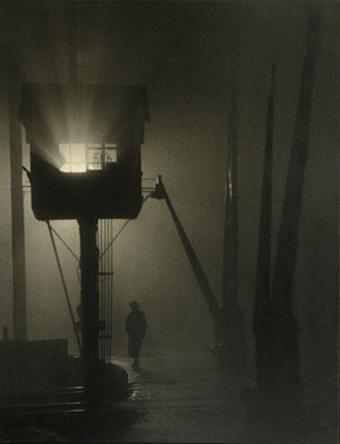
Thick Weather
Sheldon Hine
1935
Salon Photography
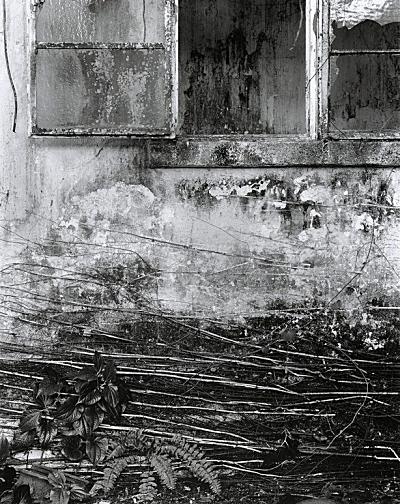
Forest
Simryn Gill
Art Gallery of NSW
more
Roslyn Oxley9 Gallery
via arsvitaest
_______________________
Birth Of A Nation
Christian Hawkey
Did the world squat down & push out
a nation? Was it a nation before the world
called it a nation? Do they have customs?
Do they honor the power cats have over ice?
(....)
Do they speak in clicks & soft exploding accents?
Do they sound, at large gatherings, like a popcorn machine?
Do they communicate with their strangely powerful shoulders?
Do they articulate panic by squeezing air
through their tear ducts? Does this cleanse
the national language? Is it on the brink
of extinction? Is a dead language a body
that has consumed itself
to the point of having no point? Is a dead language
an empty stomach, growling? Is a dead language
capable of speaking beyond its own grave, late at night,
when a low moon drifts
through the banyan roots and a child wakes,
unable to wake, and begins whispering for the sake of
whispering, for the sake of keeping time with his pulse?
...(more)
Christian Hawkey at Poetry International Web and the Poetry Foundation
via riley dog
_______________________
Who is writing is the translator
Paul Legault reviews Ventrakl by Christian Hawkey
To quote Christian Hawkey’s quotation of Jean Laplanche:
The movement of auto-translation, the drive to translate (Trieb zur Übersetzung — to use Novalis's term) issues, springs up, not from the translator but from this untranslated or this imperfectly translated [text], which endlessly demands translation.
Ventrakl is obsessed with the idea of translation (and its discontents). It interrupts itself so consistently with critical theory on the subject — not to mention archival photographs, imagined interviews, and poems — that you soon realize the book is entirely composed of interruptions.
For Hawkey, the act of translating from one language to the next has to be blatant. The poem is to be changed irrevocably if it is going to make it across the language barrier — not to mention the century gap between Trakl and his newest translator — with the same “spirit” intact. Though the final product looks completely different — the difference between a house and houseboat — Trakl’s still in it....(more)
_______________________

composite
Wittgenstein and his three sisters
mid-1920s Ludwig Wittgenstein's photography
.....................................................
The tragedy of Wittgenstein's photographs
Daniel Silliman
(....)
Making philosophy both the lock and the combination isn't a slip, either. The one image + the other is actually right. It's the point, for him, and exactly the problem. If the key is also the lock, then the act of unlocking also locks, as that which unlocks the lock is also itself a lock -- even the lock -- and thus the problem reasserts, the solution being another instantiation of the problem.
And this ends up being, for him, philosophy.
There's tragedy in this. The tragic life of Ludwig ... it's as if philosophy has infected him, has infected everything about him.
He found ways out, but "out" was still always in.
Which is what happens with his photographs.
...(more)
_______________________
On William Carlos Williams’s Translation of Ernesto Mejķa Sįnchez’s “Vigils”
Jonathan Cohen
(....)Williams’s translation of “Vigils” and other poems from Latin America (and from Spain) reflect his long commitment to advancing a poetic form that doesn’t deform the language. Concerning the role of translation for him, he once explained: “I don’t care how I say what I must say. If I do original work all well and good. But if I can say it (the matter of form I mean) by translating the work of others that also is valuable. What difference does it make?” Beyond Williams’s high regard for the art of translation, his “Vigils” demonstrates his embrace of the poetry of Latin America, which, through him and other translators, has had a marked influence on U.S. poets, and also redefined American poetry as transnational literature of the New World....(more)
VigilsErnesto Mejķa Sįnchez
translated by William Carlos Williams words without borders
_______________________
Photography by Default [pdf]
Clément Chérouxpdf
Translated by Garnet C. Butchart
liminalities issue 6.1
(....)
Such is failure. Its complex, supple, or twisted nature makes it a difficult subject
to master. It often escapes analysis and turns sometimes against those who tempt to
release it from its purgatory by attributing to it some unfathomable virtues. These are
some of the difficulties that are inherent in this subject, from which the present work
will, after all, perhaps not escape.
Failure is therefore the problem. But this may be precisely where its interest
resides. In la Formation de l'esprit scientifique, Gaston Bachelard demonstrates precisely that, “it is in terms of obstacles that we need to pose the problem of scientific
knowledge.” Usually, an obstacle collides with understanding; it is what blocks the
progress of comprehension. According to Bachelard, the obstacle can, on the
contrary, reveal itself to be a precious indicator of the processes in play within the
cognitive experience. Knowledge is “a light which always casts shadows
somewhere,” but is never fully perceived by them. Bachelard’s hypothesis, largely
reinforced by cognitive psychology with its psychoanalytic research on failure and
missing acts, has shown that a form of cognition exists via error and by orientation
towards shadows and obstacles. It is within this epistemological model that the
following essay is prepared. It looks to the shadows, for it is there that the failures,
accidents and mistakes that photography offers can best be analyzed. In short, it
argues for the photographic error as a cognitive tool.
In this case, it will not be a matter of taking interest in failed photographs, as
Rimbaud could love the “idiotic paintings,” neither to defend, by taste of using
exactly the opposite, or by simple pretty things, that which is shameful for others. It
would neither be a question of yielding to a literary tradition of the paradoxical
apology (which Anicet Le Pors recalls, a while ago, the proliferate) by praising
fautographie after L’Éloge de la folie, l’Éloge de l’échec, l’Éloge de la défaite, l’Éloge de la fadeur, l’Éloge de la bźtise, l’Éloge de l’arbitraire or most recently, l’Éloge de al vache folle. Far froma simple museum of horrors or of errors collating and aligning freak specimens, at the
permanent risk of teratology, this short treatise of photographic “ratologie,” presented here for the aesthete and the curious, asks us to consider carefully the slips of the tongue of the photographic medium in order to better understanding just what they
reveal.
Liminalities: A Journal of Performance Studies _______________________
Politics’ Fatal Therapeutic Turn
Zelda Bronstein
However well-intentioned, advocates of personalized activism fail to realize that therapeutic motives are fatal to political effectiveness and highly susceptible to manipulation. I aim to prompt that realization and to sketch the very different motives requisite to a durable democratic politics.
_______________________

Romualdas Po˛erskis
at
Poemas del rķo Wang

Harbour of Ostend
Léon Spilliaert
1909
_______________________
Fellow Prisoners
John Berger
guernica
(....)
I’m searching for words to describe the period of history we’re living through. To say it’s unprecedented means little because all periods were unprecedented since history was first discovered.
I’m not searching for a complex definition—there are a number of thinkers, such as Zygmunt Bauman, who have taken on this essential task. I’m looking for nothing more than a figurative image to serve as a landmark. Landmarks don’t fully explain themselves, but they offer a reference point that can be shared. In this they are like the tacit assumptions contained in popular proverbs. Without landmarks there is the great human risk of turning in circles.
The landmark I’ve found is that of prison. Nothing less. Across the planet we are living in a prison.
The word we, when printed or pronounced on screens, has become suspect, for it’s continually used by those with power in the demagogic claim that they are also speaking for those who are denied power. Let’s talk of ourselves as they. They are living in a prison.
What kind of prison? How is it constructed? Where is it situated? Or am I only using the word as a figure of speech?
No, it’s not a metaphor, the imprisonment is real, but to describe it one has to think historically....(more)
_______________________

"Self-portrait in front of a mirror"
Léon Spilliaert
1908
.....................................................
The Language of Hauntings
Dylan Trigg
(....)To the body of Spilliaert, to the body of those who are haunted, and to symptoms that have no rational place within the scheme of the subject: when the body of the human turns to the mirror and finds another self gazing back, then the experience of surprise is only because the body is unable to think in advance of its expression. Indeed, part of the horror written into Spilliaert’s face is as much a horror of being haunted by the premature arrival of a ghost, as it is the horror that the ghost was there all along. How does this expression come into the world? Is there a silence into which a fortuitous circumstance — Spilliaert being placed between two mirrors in a particular room — allows the expression to take shape? Finally, is this gloomy environment simply the means by which the inner world of the haunted gains a voice?...(more)
.....................................................
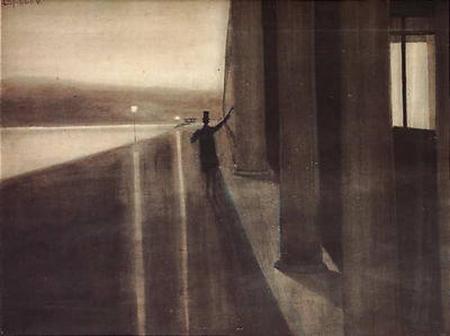
Night
Léon Spilliaert
1908
_______________________
Biblioklept Interviews Novelist Lars Iyer
(....)
Sometimes it is necessary to depart. Sometimes it is necessary to leave it all behind. That’s how I understood the act of blogging, back when I started Spurious, the blog which shares the same name as the novel.
As someone who had made some progress as an academic – a journey which implies valuable training as well as compromise and despair – I thought a kind of exodus was necessary, from existing forms of published writing. Leave it all behind!, I told myself. Leave the Egypt of introductory books and academic journals and edited collections behind. Leave the slave-drivers behind, and the sense you have of being a slave. Leave capitalism and capitalist relations behind. Leave behind any sense of the importance of career and advancement. Leave behind those relationships that are modelled on investment and return.
Sometimes a kind of solitude is necessary. You need to be alone, to regather your forces, to marshall your strength. But what is really necessary is a solitude in community. You’re on your own, depending on your own resources. But your solitude is lightened: because you know that there are others like you, who have likewise expelled themselves from captivity; because you know that others share your sense of disgust and self-disgust, that they too have gone out to the desert to do battle with the demons sent by capitalism into each of our souls; because there are others, like you, who see writing as both scourge and liberation, others who see it as a spiritual trial, others looking to destroy who they were and be reborn, and to keep themselves in rebirth.
In the end, the desert is paradise, and the world the blogger has left behind, with its whips and fleshpots, is the real desert.
...(more)
_______________________
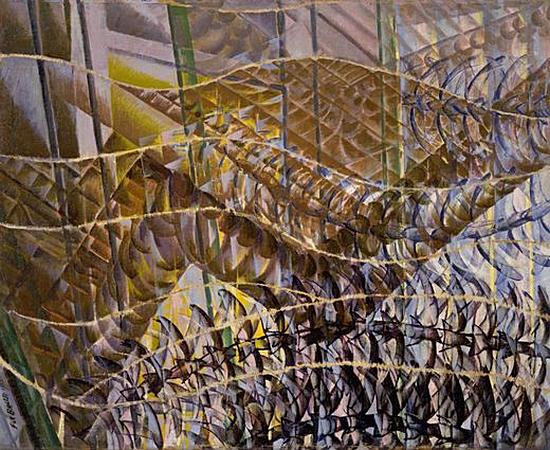
Swifts
Paths of Movement+Dynamic Sequences
1913
Giacomo Balla
b. July 18, 1871
_______________________
Powers Of Recuperation
Adrienne Rich
1.
A woman of the citizen party—what’s that—
is writing history backward
her body the chair she sits in
to be abandoned repossessed
The old, crusading, raping, civil, great, phony, holy, world,
second world, third world, cold, dirty, lost, on drugs,
gangrenous, maiming, class
war lives on
a done matter she might have thought
ever undone though plucked
from before her birthyear
and that hyphen coming after
She’s old, old, the incendiary
woman
endless beginner
whose warped wraps you shall find in graves
and behind glass plundered
...(more)
A Public Space
_______________________
(....)
That essential sense of decency is outraged every day. Our theocratic enemy is in plain view. Protean in form, it extends from the overt menace of nuclear-armed mullahs to the insidious campaigns to have stultifying pseudo-science taught in American schools. But in the past few years, there have been heartening signs of a genuine and spontaneous resistance to this sinister nonsense: a resistance which repudiates the right of bullies and tyrants to make the absurd claim that they have god on their side. To have had a small part in this resistance has been the greatest honor of my lifetime: the pattern and original of all dictatorship is the surrender of reason to absolutism and the abandonment of critical, objective inquiry. The cheap name for this lethal delusion is religion, and we must learn new ways of combating it in the public sphere, just as we have learned to free ourselves of it in private.
Our weapons are the ironic mind against the literal: the open mind against the credulous; the courageous pursuit of truth against the fearful and abject forces who would set limits to investigation (and who stupidly claim that we already have all the truth we need). Perhaps above all, we affirm life over the cults of death and human sacrifice and are afraid, not of inevitable death, but rather of a human life that is cramped and distorted by the pathetic need to offer mindless adulation, or the dismal belief that the laws of nature respond to wailings and incantations.
As the heirs of a secular revolution, American atheists have a special responsibility to defend and uphold the Constitution that patrols the boundary between Church and State. This, too, is an honor and a privilege. Believe me when I say that I am present with you, even if not corporeally (and only metaphorically in spirit...) Resolve to build up Mr Jefferson's wall of separation. And don't keep the faith.
Sincerely
Christopher Hitchens
|
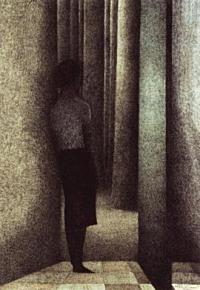
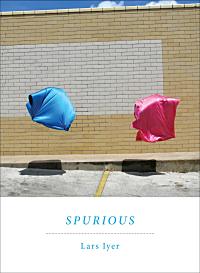


 The Age of Briggs & Stratton
The Age of Briggs & Stratton























